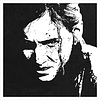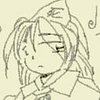Take a photo of a barcode or cover
adventurous
challenging
informative
inspiring
reflective
relaxing
medium-paced
Ein tolles und wichtiges Essay aus dem Jahre 1938, dass sehr provokante Fragen stellt und zu einer Neuentdeckung des Menschen und seiner geschichtlichen Entwicklung einlädt. Huizunga betrachtet hierbei Spiel nicht nur als eine Kulturerscheinung unter vielen, sondern als Element von Kultur selbst: eine grundlegende Substanz, formative Kraft von Kultur. "Kampf z. B. als brutale Selbstbehauptung so alt wie der Mensch, wird im Medium des Spiels zum Wettstreit gebändigt, zur Auseinandersetzung nach Regeln auch beim Waffengebrauch, und damit zu einem Stück anfangender Kultur. Religion und Kultus entfalten sich in heiligen Spielen. Dichtung und Musik sind im Spiel geboren und sind und bleiben ihrem Wesen nach Spiel. Aber auch die Formen des sozialen Umgangs, die Konventionen, das Regeln der Konflikte, Rechtswahrung und Rechtsprechung gründen und formen sich im Spiel. «Kultur in ihren ursprünglichen Phasen wird gespielt. Sie entspringt nicht aus Spiel, wie eine lebende Frucht sich von ihrem Mutterleibe löst, sie entfaltet sich in Spiel und als Spiel»". Und es ist wirklich eine spannend geschriebene Reise durch die altgermanische, japanische, chinesische und griechische Kultur, die mir interessante Einsichten in das Verständnis von "Spiel" als solches geboten haben, d. h. in Hinblick auf die unterschiedlichen Verständnisse der einzelnen Kulturen von "Spiel". So ist unser im deutschen Sprachraum gängiges Verständnis des Begriffs (das Niederländische funktioniert analog dazu genauso, also bieten sich da keine Unterschiede) ein sehr abstrahiertes, allgemeines, dass sich auf unfassbar viele Lebensbereiche anwenden lässt und unter sich, dem Begriff "Spiel", subsummiert. Sei es nun das kindliche Spiel, sozial organisiertes Spiel, Wettkämpfe, Krieg usw. Im Gegensatz dazu sind die "Sphären", in denen sich einzelne Bereiche wie das Glücksspiel bspw. bewegen, vielleicht in einer anderen Kultur anderen Sprachräumen als des Spiels zugeordnet und werden demzufolge auch anders wahrgenommen als "Spiel". Vielleicht dann eher als Frage der Ehre. Oder der Familie. Was auch immer das heran- und zusammengewachsene Sprachkonstrukt und die umgebende Kultur daraus gemacht haben und gegenwärtig machen.
Ohne ins Detail gehen zu können, erhärtet sich auch mit dieser Lektüre der Eindruck, sich dem Ausmaß, in dem man sich von vergangenen Bewusstseinszuständen vergangener Zeiten unterscheidet, noch gar nicht vollumfänglich bewusst zu sein. Denn ja ich weiß, vermutlich ewige Reise. Aber insbesondere bei den Ausführungen zu den archaischen Völkern und ihren Sitten, die eine Vorstufe zu dem bilden, was wir wohl Kultur nennen würden, imponierten mir die nachhakende Art, die Art und Weise des Wissenschaftens zu hinterfragen: "Eine noch tiefer schürfende Frage, zu der die Betrachtung der Personifikation und Allegorie Anlaß gibt, lautet: Haben die heutige Philosophie und Psychologie das Ausdrucksmittel der Allegorie gänzlich aufgegeben? Oder schleicht sich nicht doch zuweilen in die Terminologie, mit der sie psychologischen Impulsen und Geisteshaltungen Namen geben, die uralte Allegorie ein? - Aber gibt es eigentlich überhaupt jemals abstrahierende Sprache ohne Allegorie?" Fürwahr, gibt es die überhaupt?
Insgesamt nehme ich für mich mit, das sich im Spiel in einem Prozess der Grenzziehung und -überschreitung Prozesse der Anspannung und der Entspannung vollziehen, die die Ambivalenz dessen verkörpern, was die glücklichsten unter uns jeden Tag verspüren dürfen: Leben. Leben ist Spiel. Und Ernst. Aber eben auch Spiel. Ich habe das Gefühl, daraus kann man mehr mitnehmen, als auf den ersten Blick ersichtlich scheint. Aber Huizunga erklärt euch das deutlich besser als ich (oder zumindest mal schöner): Wer in der ewigen Umwälzung des Spiel-Ernst-Begriffs fühlt, wie seinen Geist ein Schwindel ergreift, der findet den Stützpunkt, der ihm im Logischen entsank, im Ethischen wieder. Das Spiel an sich, so sagten wir zu Anfang, liegt außerhalb der Sphäre der sittlichen Normen. Es ist an sich weder böse noch gut. Wenn aber der Mensch eine Entscheidung zu treffen hat, ob eine Tat, zu der sein Wille ihn treibt, ihm als Ernst vorgeschrieben oder als Spiel erlaubt ist, dann bietet ihm sein sittliches Gewissen einen Prüfstein. Sobald im Entschluß zur Tat Gefühle von Wahrheit und Gerechtigkeit, von Erbarmen und Vergebung mitsprechen, hat die Frage keine Bedeutung mehr. Ein Tropfen Mitleid ist genug, um unser Tun über die Unterscheidungen des denkenden Geistes emporzuheben. In jedem sittlichen Bewußtsein, das in der Anerkennung von Gerechtigkeit und Gnade gegründet ist, kommt die Frage, ob Spiel oder Ernst, die bis zuletzt unlösbar blieb, für immer zum Schweigen."
Unzählige spannende Dinge wären noch zu erzählen, aber ich bin zu faul. Also noch der Abschluss des Nachtwortes von Andreas Flitner: "Homo ludens - wer sollte den Menschen zeichnen, ohne sich auch seiner Spieler-Natur zu vergewissern?"
Ohne ins Detail gehen zu können, erhärtet sich auch mit dieser Lektüre der Eindruck, sich dem Ausmaß, in dem man sich von vergangenen Bewusstseinszuständen vergangener Zeiten unterscheidet, noch gar nicht vollumfänglich bewusst zu sein. Denn ja ich weiß, vermutlich ewige Reise. Aber insbesondere bei den Ausführungen zu den archaischen Völkern und ihren Sitten, die eine Vorstufe zu dem bilden, was wir wohl Kultur nennen würden, imponierten mir die nachhakende Art, die Art und Weise des Wissenschaftens zu hinterfragen: "Eine noch tiefer schürfende Frage, zu der die Betrachtung der Personifikation und Allegorie Anlaß gibt, lautet: Haben die heutige Philosophie und Psychologie das Ausdrucksmittel der Allegorie gänzlich aufgegeben? Oder schleicht sich nicht doch zuweilen in die Terminologie, mit der sie psychologischen Impulsen und Geisteshaltungen Namen geben, die uralte Allegorie ein? - Aber gibt es eigentlich überhaupt jemals abstrahierende Sprache ohne Allegorie?" Fürwahr, gibt es die überhaupt?
Insgesamt nehme ich für mich mit, das sich im Spiel in einem Prozess der Grenzziehung und -überschreitung Prozesse der Anspannung und der Entspannung vollziehen, die die Ambivalenz dessen verkörpern, was die glücklichsten unter uns jeden Tag verspüren dürfen: Leben. Leben ist Spiel. Und Ernst. Aber eben auch Spiel. Ich habe das Gefühl, daraus kann man mehr mitnehmen, als auf den ersten Blick ersichtlich scheint. Aber Huizunga erklärt euch das deutlich besser als ich (oder zumindest mal schöner): Wer in der ewigen Umwälzung des Spiel-Ernst-Begriffs fühlt, wie seinen Geist ein Schwindel ergreift, der findet den Stützpunkt, der ihm im Logischen entsank, im Ethischen wieder. Das Spiel an sich, so sagten wir zu Anfang, liegt außerhalb der Sphäre der sittlichen Normen. Es ist an sich weder böse noch gut. Wenn aber der Mensch eine Entscheidung zu treffen hat, ob eine Tat, zu der sein Wille ihn treibt, ihm als Ernst vorgeschrieben oder als Spiel erlaubt ist, dann bietet ihm sein sittliches Gewissen einen Prüfstein. Sobald im Entschluß zur Tat Gefühle von Wahrheit und Gerechtigkeit, von Erbarmen und Vergebung mitsprechen, hat die Frage keine Bedeutung mehr. Ein Tropfen Mitleid ist genug, um unser Tun über die Unterscheidungen des denkenden Geistes emporzuheben. In jedem sittlichen Bewußtsein, das in der Anerkennung von Gerechtigkeit und Gnade gegründet ist, kommt die Frage, ob Spiel oder Ernst, die bis zuletzt unlösbar blieb, für immer zum Schweigen."
Unzählige spannende Dinge wären noch zu erzählen, aber ich bin zu faul. Also noch der Abschluss des Nachtwortes von Andreas Flitner: "Homo ludens - wer sollte den Menschen zeichnen, ohne sich auch seiner Spieler-Natur zu vergewissern?"
At times dense and a bit verbose, Homo Ludens offers great insights on play and its role in human history.
informative
reflective
slow-paced
challenging
informative
reflective
slow-paced
This one is a dense read that left me feeling like I need to for sure work more on my history chops. There are so many references to ancient texts. The book is a cross-cultural exploration of play throughout human society and culture, identifying play as the central feature in flourishing societies.
Some chapters were certainly more interesting than others, and the book is noticeably dated. Overall, though, I can see why this is a must-read for play theorists. I recommend this one for those who like an intellectual challenge or who are also writing about play.
📖: (4/5) ⭐️⭐️⭐️⭐️
Homo Ludens is a study into play where Huizinga argues that play is an element in everyday life. It was recommended to me by Daniel Bosch, my English professor. The book provided insight into ancient cultures, their linguistic, and contests that contributes to play-like qualities. We explored how play is found in poetry, war, philosophy, contest (and more) of both archaic and modern societies. This book gave a great general scope of humanity through the thread of play, something that I did not consider previously. For example, the magical sphere of play that is bounded by rules and time, the innocence of play (where we play for the sake of playing), and the seemingly bipolar concepts of play and seriousness that are more intertwined than we expect.
However, I found that I did not understand a number of the references due to my limited understanding of historic literature (ex. Plato). I hope to return to this book when I have more time, considering I finished this during finals week and was forced to return it, and a broader understanding of Greek texts. This was also partly my fault because I went into this book not knowing it was essentially a formal study, and the reading is dense.
However, I found that I did not understand a number of the references due to my limited understanding of historic literature (ex. Plato). I hope to return to this book when I have more time, considering I finished this during finals week and was forced to return it, and a broader understanding of Greek texts. This was also partly my fault because I went into this book not knowing it was essentially a formal study, and the reading is dense.
informative
reflective
fast-paced
Lastig om doorheen te komen door de taal en door het schrijven met alle vooroordelen en 'kortzichtigheid' van zijn tijd. Alhoewel een interessant onderwerp wat je aan het denken zet, ben ik het met veel niet eens.
Voornamelijk het versimpelen van de oude maatschappij en het vergroten van de mate van 'civilizes society' van het heden.
Voornamelijk het versimpelen van de oude maatschappij en het vergroten van de mate van 'civilizes society' van het heden.
There are some things to know about before reading this book:
1) It's an older book, it's written like an academic essay, and it's a translation. This all lends to it being quite dense. I was occasionally re-reading and looking up terms.
2) Due to the age, there is some language use and there are topics that aren't sensitively approached. As an example, the word "savage" is used a lot in describing cultures. You can also expect some pretentious takes that are best ignored, like his criticisms of modern dance and reverence for ballet.
3) Akin to [b:Flow: The Psychology of Optimal Experience|66354|Flow The Psychology of Optimal Experience|Mihaly Csikszentmihalyi|https://i.gr-assets.com/images/S/compressed.photo.goodreads.com/books/1432253110l/66354._SY75_.jpg|64339], the initial chapters (I'd say 1-3) hold the primary points of the authors arguments, and many of the subsequent chapters are focused only on how this argument applies to various topics. I think it's a bit harder to skip topics in this book than in Flow, since some key arguments are embedded in these topical chapters, but still, I wouldn't worry too much if you'd prefer to skip a chapter or two.
All that aside, the book is very well written, and coherently argues it's definition of play or "the play-state", and applies those concepts neatly to many cultural components. There are countless interesting observations of ancient cultural development from the play perspective. It had me consistently pausing, processing, and appreciating one of these observations in the midst of my reading. I'd say the price of admission here is worth it, just to train yourself to view aspects of your life in reference to play.
1) It's an older book, it's written like an academic essay, and it's a translation. This all lends to it being quite dense. I was occasionally re-reading and looking up terms.
2) Due to the age, there is some language use and there are topics that aren't sensitively approached. As an example, the word "savage" is used a lot in describing cultures. You can also expect some pretentious takes that are best ignored, like his criticisms of modern dance and reverence for ballet.
3) Akin to [b:Flow: The Psychology of Optimal Experience|66354|Flow The Psychology of Optimal Experience|Mihaly Csikszentmihalyi|https://i.gr-assets.com/images/S/compressed.photo.goodreads.com/books/1432253110l/66354._SY75_.jpg|64339], the initial chapters (I'd say 1-3) hold the primary points of the authors arguments, and many of the subsequent chapters are focused only on how this argument applies to various topics. I think it's a bit harder to skip topics in this book than in Flow, since some key arguments are embedded in these topical chapters, but still, I wouldn't worry too much if you'd prefer to skip a chapter or two.
All that aside, the book is very well written, and coherently argues it's definition of play or "the play-state", and applies those concepts neatly to many cultural components. There are countless interesting observations of ancient cultural development from the play perspective. It had me consistently pausing, processing, and appreciating one of these observations in the midst of my reading. I'd say the price of admission here is worth it, just to train yourself to view aspects of your life in reference to play.
As college students, how many of us ever made it through the entire "recommended reading" list for a class? And for a class with 17 recommended titles and "Homo Ludens" being the most difficult to acquire (the vast University of Minnesota library system doesn't have a copy), even the most thorough of us could be forgiven for leaving it by the wayside.
But four years after taking the Toy Product Design class that cited Homo Ludens, I find myself helping to teach it, and I figured I ought to have a more complete knowledge of the background information.
Unfortunately, I have to satisfy myself with giving it the old college try. The book is written as an almost stream-of-consciousness contemplation on the idea of play, and after giving a vague notion of his definition of the concept, Huizinga goes on to meander through related subjects without a clear hypothesis or point.
I will say that I thoroughly enjoyed the chapter on the concept of play as expressed in language. I nearly went for a linguistics minor in college, and the chapter on other ideas expressed through words related to play and their possible connection to the "play-concept" fascinated me. In this chapter, Huizinga gets closest to making any kind of cogent argument: the words for play in many languages refer both to a specific kind of recreational or ritual activity that he defines as the "play-concept" and to rapid or capricious movements of objects, systems, or creatures.
After that chapter, my interest in the book rapidly declined as successive topics were abruptly discarded, as by a toddler who has seen something even more colorful across the room. I didn't finish the book; my attention span is perhaps no more blameworthy than Huizinga's. Perhaps the final chapter neatly wrapped up all categories of study and contemplations with a cohesive conclusion. I haven't the patience to find out.
But four years after taking the Toy Product Design class that cited Homo Ludens, I find myself helping to teach it, and I figured I ought to have a more complete knowledge of the background information.
Unfortunately, I have to satisfy myself with giving it the old college try. The book is written as an almost stream-of-consciousness contemplation on the idea of play, and after giving a vague notion of his definition of the concept, Huizinga goes on to meander through related subjects without a clear hypothesis or point.
I will say that I thoroughly enjoyed the chapter on the concept of play as expressed in language. I nearly went for a linguistics minor in college, and the chapter on other ideas expressed through words related to play and their possible connection to the "play-concept" fascinated me. In this chapter, Huizinga gets closest to making any kind of cogent argument: the words for play in many languages refer both to a specific kind of recreational or ritual activity that he defines as the "play-concept" and to rapid or capricious movements of objects, systems, or creatures.
After that chapter, my interest in the book rapidly declined as successive topics were abruptly discarded, as by a toddler who has seen something even more colorful across the room. I didn't finish the book; my attention span is perhaps no more blameworthy than Huizinga's. Perhaps the final chapter neatly wrapped up all categories of study and contemplations with a cohesive conclusion. I haven't the patience to find out.




